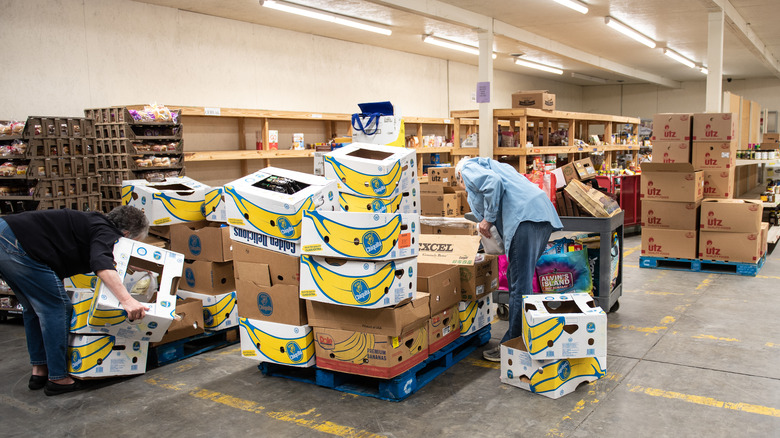How The US Plans To Tackle Food Inflation And Supply Chain Woes
If it seems like the prices at the grocery store have gotten even higher lately, you're not imagining things. According to Bloomberg, America is currently experiencing the highest annual increase in grocery store prices since 1980. With inflation and supply chain issues creating the perfect storm, President Biden made moves to strengthen the agriculture industry with the goal of driving down prices through a domino effect. As The Chicago Tribune reported in early May, the plan includes extending insurance eligibility to farmers who produce two crops in one year, permitting the sale of biodiesel during the summer, and putting $250 million into fertilizer production.
But providing assistance to farmers alone is already proving to be insufficient in putting a stop to rising grocery store prices. Therefore, Bloomberg shares, the Biden Administration will also be allotting $2.1 billion towards an overhaul of America's entire food system. "A transformed food system is part of how we as a country become more resilient," a pre-planned announcement written by Agriculture Secretary Tom Vilsack states. Funding for the new initiative will be taken from last year's $1.9 trillion COVID relief plan "and other relief legislation."
What will America's new food system look like?
According to the U.S. Department of Agriculture, the Biden Administration's $2.1 billion plan is designed to "benefit consumers, producers and rural communities by providing more options, increasing access, and creating new, more, and better markets for small and mid-size producers." To carry this out, funding is divided into four categories of initiatives: Food Production, Food Processing, Food Distribution and Aggregation, and Markets and Consumers.
The largest portion of the funds, up to $600 billion, will go towards supply chain infrastructure including cold-storage units, refrigerated trucks, and processing facilities. Four hundred million will be used to create regional food business centers that will increase the function and reach of small to mid-sized farms, food producers, and distributors. Up to $375 million is designated for the expansion of independent meat and poultry processing plants, and up to $300 million is set aside for the Organic Transition Initiative, which will support the transition to organic farming.
With a total of $2.1 billion to work with, the Biden Administration aims to finetune every kink in the supply chain, transforming the food system to withstand inflation and ultimately lower prices for both producers and consumers.

